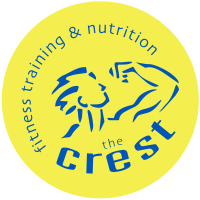Your brain’s only source of energy is Glucose, which is what all carbohydrates assimilate into when digested (both simple and complex carbohydrates, but complex carbs have soluble fiber and are the focus of your carb intake). Consult the Glycemic food charts to select the complex carbs with the lowest glycemic ratings, so the glucose “conversion” will release into your bloodstream at a slower rate, disallowing the storage of excess glucose into adipose tissue (fat). Eat what you need based on your daily caloric intake, don’t over-eat. Avoid eating late at night, as this food will most likely result in fat storage unless it is very low in calories, high in protein and from complex carbohydrate sources that are very low in their glycemic rating. Eating late may also hinder you from having a restful night’s sleep, as the food digesting in your stomach may interfere with you being able to get into REM sleep. REM is the deepest sleep, and it is here that your growth hormone is released, giving biochemical signals to your system to burn the fat stored in your body, and keep your muscle tissue lean and healthy throughout. Your body only “heals” during sleep, you need at least 8 hours of sleep per/night.
Eat your first meal early in the morning, so that you will be able to fit the other 3 to 5 meals into your schedule and timing them accordingly throughout the day. Yes, breakfast is the most important meal of the day, followed by your post-workout meal in importance.
Your post-workout meal should be consumed within 30 minutes after you exercise, while your body is craving the replenishment of glycogen stores, which were depleted during exercise. Your pre-workout meal is the next most important meal, but be careful not to overeat on this one, and give yourself 1 to 2 hours of digestion before exercising. If you miss a meal, plan ahead using a meal replacement protein bar or a protein shake with a piece of fruit or vegetables. Try to get half of your food daily from fresh fruits and vegetables; cooking them depletes the nutrients. Please do not consider the food like substance sold at most fast-food restaurants, the momentary convenience is not worth the excess fats, and absence nutritional value. Remember, most people store body fat not necessarily from overeating, but from undernourishing their bodies.
To your body, digestion is considered work, and the more work you make your body perform, the more energy you burn, raising your metabolism while supplying the needed nutrition to get healthy and fit. I call this “getting a workout from the inside out.” Your body uses way more stored body fat to fuel your digestive system than from doing aerobic, or cardiovascular exercise. Diets and doing more cardio doesn’t work for helping you get lean; this is a lifestyle change for the better. So eat more and exercise less and if you want to give your digestive system a rest, fast one day out of the month drinking only water, protein shakes and fruit/vegetable juices.
Stay healthy my friends.
